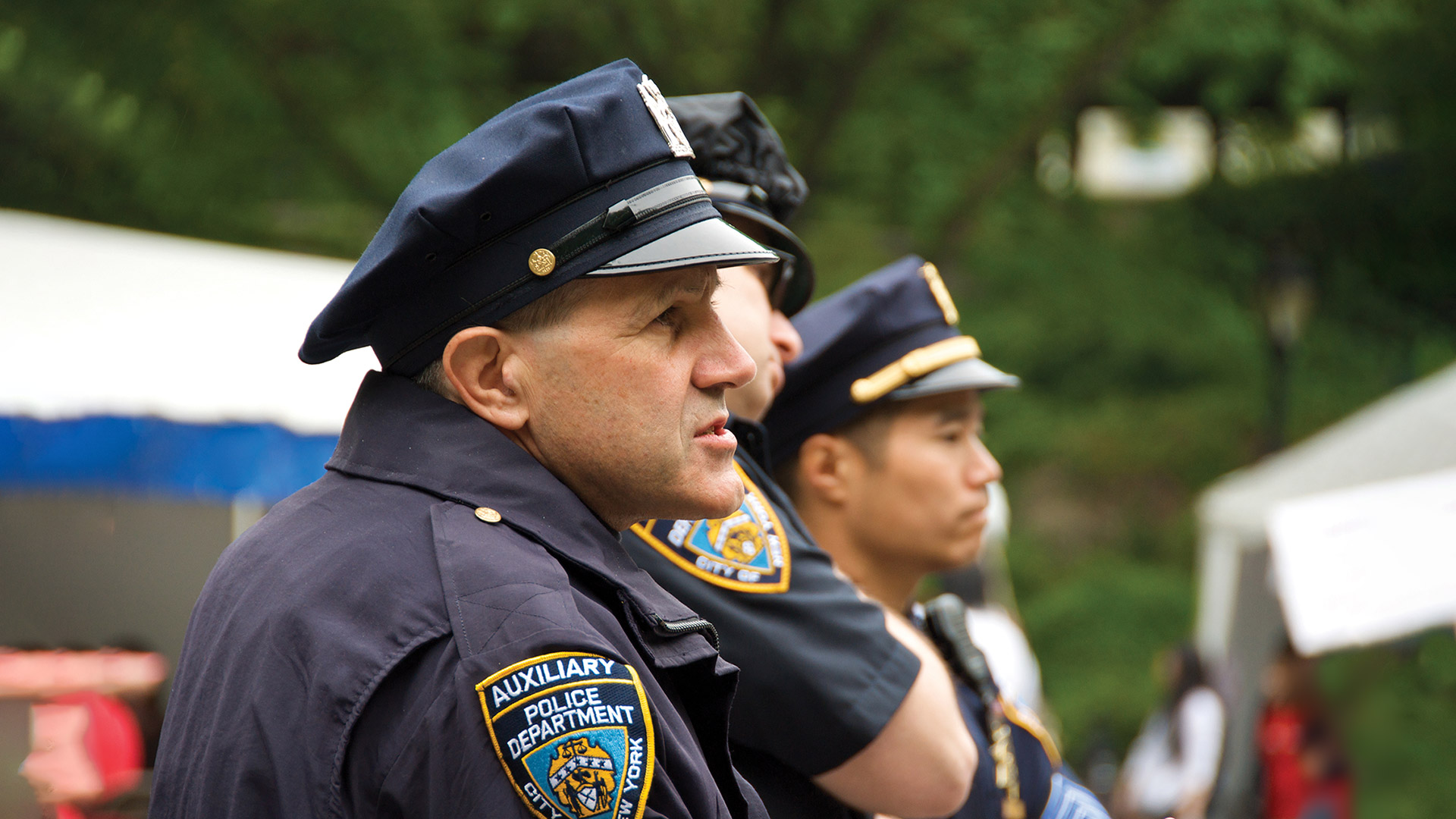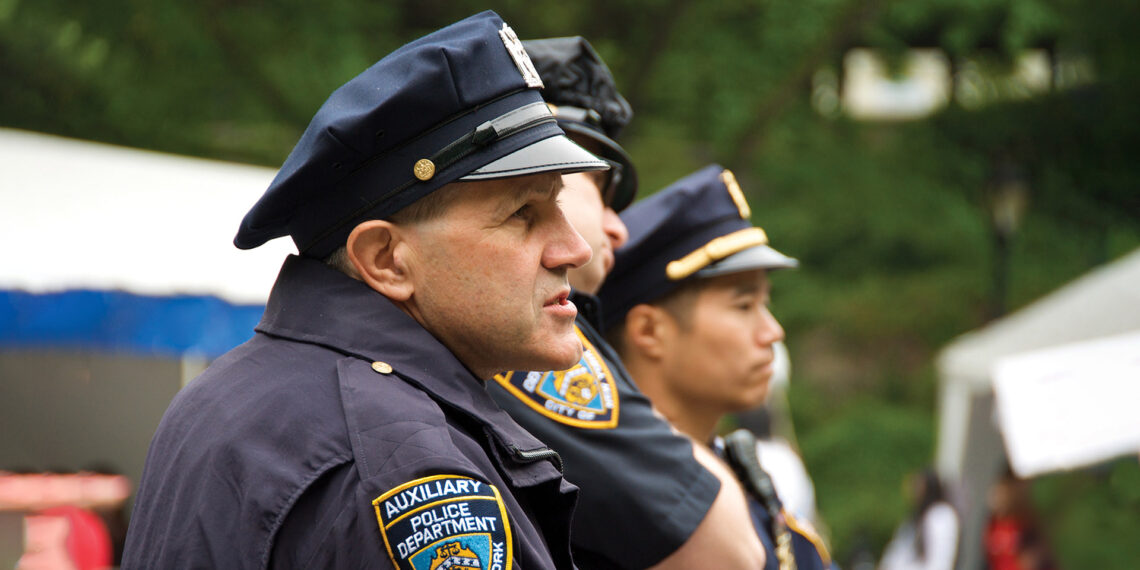[ad_1]

Law enforcement officers are charged with a wide array of duties in order to protect the community, maintain order and safeguard the public’s rights. They put on a thousand hats. While this is valuable for the public, it can be wearing on officers and their departments, especially in times when resources are thin.
Auxiliary enforcement officers, including community service officers, code enforcement, civilian traffic enforcement, and, in Canada, bylaw enforcement, offer critical support to law enforcement and the municipalities they serve. While often overlooked, these officers relieve sworn members of time-consuming work related to minor infractions, quality-of-life issues and safety management that doesn’t involve violence or serious crime. They play a key role in helping communities function smoothly while freeing up law enforcement for more complex criminal responses.
For this article, I interviewed Sabina Smith, who worked for nearly 10 years as a senior bylaw officer in Whistler, British Columbia (BC), about how the role of bylaw complements law enforcement, the challenges bylaw officers face and the tools that help them do their jobs of maintaining safety and order in the communities they serve.
How do bylaw officers support law enforcement?
I think it’s interesting because the scope of a bylaw officer is changing, especially in British Columbia. What a bylaw officer would normally be expected to do — enforce leash laws, drinking in parks, building use, property maintenance, parking — has really broadened as a result of police services being understaffed and overworked. Calls that address the underhoused population, disturbances, neighbor disputes and drug use are shifting to bylaw. By taking on these responsibilities, police are able to respond to the more serious calls that bylaw officers aren’t trained on and may require force.
What kind of challenges and opportunities would you say a bylaw officer faces in their job?
In terms of challenges, and speaking from a BC perspective, the profession and especially the training of bylaw officers, is not regulated, which can pose safety issues. Officers are not necessarily equipped to handle the evolving — and now more complex — calls they’re expected to take. And, of course, as in any compliance profession, there’s conflict that arises when an officer is trying to get someone to follow the rules, whether it’s getting someone to move along or put a leash on their dog. That brings up questions like: How are we training our officers to properly de-escalate? Are we communicating effectively with people in order to gain voluntary compliance, which is actually a mandate of the province of BC?
Can you say more about the mandate for voluntary compliance?
If you look at British Columbia, the province wants officers to gain compliance voluntarily. This means first requesting that whatever infraction be corrected without the need for a ticket, any use of force or having to call for police backup. So, in that regard verbal communication is so important for a bylaw officer.
So, the idea is that the province wants the public to follow the rules on their own and correct any violations voluntarily. And you’re suggesting that to do that, verbal communication skills are essential?
Yes, absolutely.
What kind of skills or tools have worked for you?
Employing strategic curiosity, hands down. Asking about and listening to whatever the issue is that they are having. For example, even if I were there to say, “You need to clean this clutter off your lawn,” I’d approach it by asking them to tell me about why they need the things on their lawn. No matter what the problem, the question on my mind is: What is this about? I like to engage with the public in that way to show them that I’m actually there to listen and to help and that I’m interested in what’s going on. It’s easy to go in with an enforcement mindset like, “This is what I’m here for, this is what you need to do and these are the repercussions if you don’t do it. But to get compliance and to ease the conflict that goes along with this kind of work, approaching a call with curiosity to find out what is actually beneath the problem leads to successful outcomes and, most often, the voluntary compliance that we want.
Is there anything you would want the public to know about bylaw officers?
The first thing is that being approached by bylaw — or any enforcement officer — is nothing personal. We’re all working for the community, and the goal is always safer, more pleasant living environments for everybody. And some people forget that the laws are created by the city government, which they elect. So if there’s something that a large group of people don’t agree with, there’s an opportunity to change that.
Do you have any stories that you’d want to tell readers about what it’s like to be a bylaw officer?
Every community is unique, which makes bylaw such an interesting profession. I was a bylaw officer in Whistler, British Columbia, which is in the northern Rocky Mountains and is much different than working in a city. But I’ll never forget the time I was called to respond to a grown black bear that was hit by a car on the highway. I was liaising with our conservation officers to try and get this bear, who was now dead, off the road and then figure out what we were going to do with it. We ended up enlisting a bunch of our public maintenance workers to help us carry the bear and put it in a cage for transport. That was a memorable experience and really highlights that you never know what the day will hold, but that you are always working for the public’s best interest.
[ad_2]





